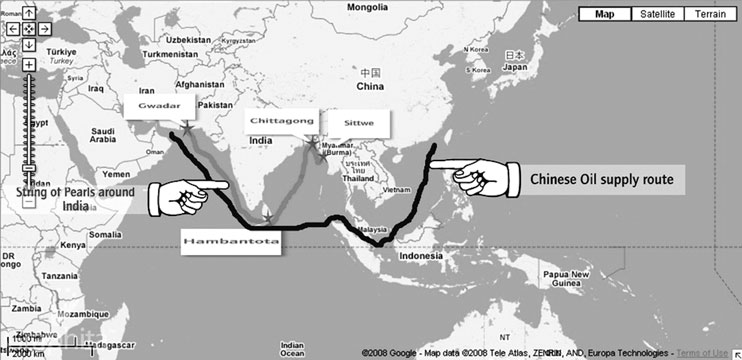Hambantota Port and new Law of the Sea
by Dr. Upali KARUNATILLEKE
Arvid Pardo, the Ambassador of Malta to the UN, presented a
revolutionary concept on "the sea-base and the ocean floor", where he
warned the United Nations that it must be treated as "common heritage of
mankind" as otherwise it could lead to conflict between states that
would lead to the Third World War that would spell the end of humanity.
The United Nations General Assembly which took serious note went
ahead by sponsoring a number of conventions on 'The Law of the Sea",
which is unique in many respects, but the most notable was that it now
serves as a constitution for the management of the ocean.
The Under Secretary for the Special Representative of the Secretary
General for the Law of the Sea, Bernard Zules had this to say in
presenting the Law of the Sea (UNCLOS III).
 "On December 10, 1982, the United Nations Convention on the Law of
the Sea was opened for signature at the Montague Bay, Jamaica. "On December 10, 1982, the United Nations Convention on the Law of
the Sea was opened for signature at the Montague Bay, Jamaica.
This marked the culmination of over 14 years of work involving
participation by more than 150 countries representing all regions of the
world, all political systems, all degrees of socio-economic development,
countries with various dispositions regarding the kinds of minerals that
can be found in the sea-bed. Coastal states, states describing as
geographically disadvantageous with regard to the ocean space,
archipelagic states, island states and landlocked states.
These countries convened for the purpose establishing a comprehensive
regime "dealing with all matters relating to the Law of the Sea....
bearing in mind that the problems of ocean-space are closely
inter-related and need to be considered as a whole". The fruits of these
labours are embodied in the UNCLOS III".
The Special Commissioner of Sri Lanka at the UNCLOS Conventions, Dr.
Hiran Jayawardena, signed the convention on behalf of Sri Lanka. He is
the Secretary General of IOMAC and the Chairman of NARA.
UNCLOS III is of particular interest to Sri Lanka because the then
Ambassador to the UN in the 80s, the late Shirley Amarasinghe was the
Chairman of UNCLOS III. And the convention grants a special status to
beyond her EEZ of 200 nautical miles to an area in the continental
shelf, which will be more than 23 times the land and sovereign rights
for the purpose of exploring and exploiting natural resources such as
hydrocarbons, minerals and living organisms and sedimentary species.
What is most significant in UNCLOS III is defining the rights and
obligations of all states - coastal, flag and port. The state
responsibilities have been identified and emphasised. But in the Indian
Ocean, most of the States are in the Third World. They have very limited
resources, particularly in regard to conservation, and prevention of
marine pollution. Fortunately, the Convention has suggested the
implementation should be tried with International assistance - such as
IMO Conventions - and with Regional arrangements as a basis.
As a matter of fact, this has been suggested in twenty-two clauses in
the convention - eg. In Part V - Exclusive Economic Zone-Arts - 61, 62,
63, 64, 66, 69 and 70. Similarly in part VI - High Sea, Part IX -
Enclosed seas, part X - Land Locked States, Part XII - Protection of
Marine Environment and Part XIV - Development and Transfer of Marine
Technology. With the commissioning of the Hambantota Port in November,
it becomes the most suitable capital of the Indian Ocean to implement
the Convention of UNCLOS to the advantage of our country.
There are four entrances to the ocean for ships including oil and
other cargo. It is estimated that about 7,000 ships use the ocean for
trafficking to and from East to West and West to East. The entrances
are: the Cape of Good Hope in South Africa, Aden in Yemen through the
Red Sea, the Gulf of Hormuz in Iran through the Persian Gulf and
Singapore.
It will be necessary through IMO to monitor the safety and
seaworthiness of every vessel entering the area around Hambantota Prot
in the Indian Ocean, to make the safest sea.
All the authorities in Sri Lanka will have to co-ordinate their
activities by using Hambantota as a centre for administration of the
Indian Ocean. Hambantota will become a focal point for International Law
of marine activity in shipping, marine pollution and international
co-operation. This is apart from a centre of development of the country
as a free port of the Southern and Badulla and Uva Provinces.
(The writer is an Attorney-at-Law and was conferred a Ph.D by the
Solent University, Southamption in the United Kingdom on his thesis "The
UNCLOS III and its implementation in the Indian Ocean". Email:[email protected])
|

